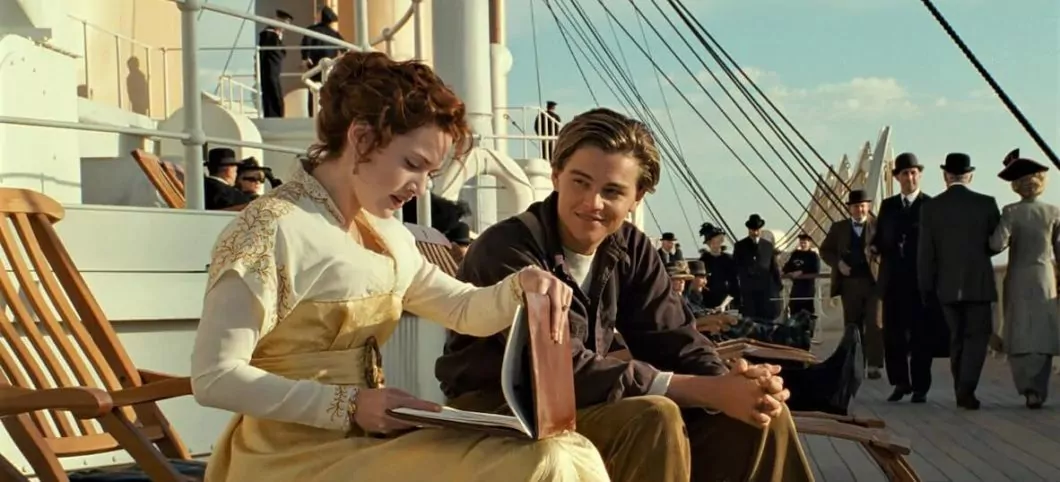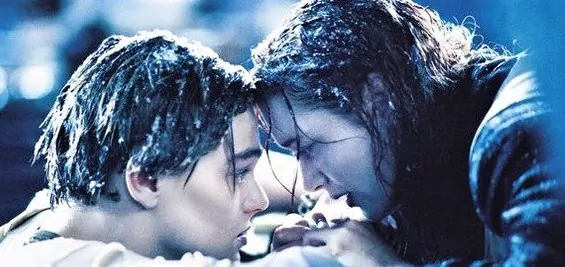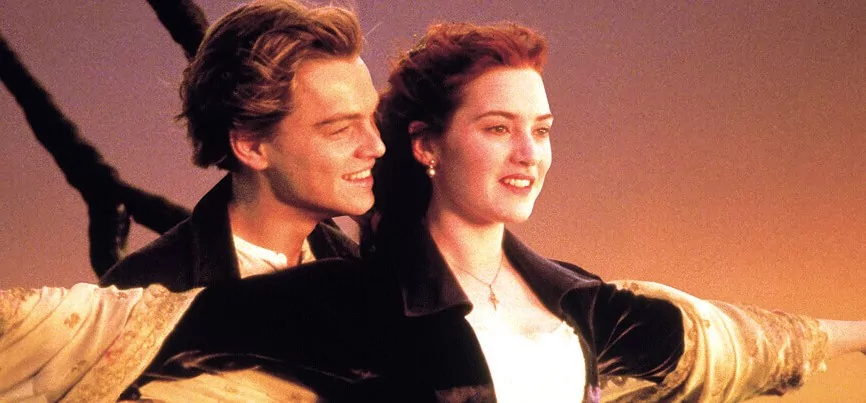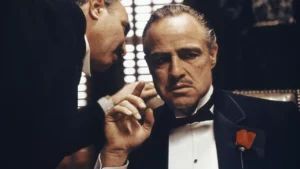
Love it or hate it, but the truth is, everyone knows it. Titanic (1997), directed by James Cameron and starring Leonardo DiCaprio and Kate Winslet, is one of the most popular and iconic movies till date. Even those who haven’t watched it in its entirety might be familiar with its references.
They might have tried the iconic ‘Jack, I’m flying’ pose whilst on a boat cruise, or might have come across references on other movies and shows. For instance- the popular drama series ‘Gilmore Girls’ has an episode titled ‘You jump, I jump, Jack’ that aired in its fifth season, which was a nod to an emotional dialogue from the movie. The fantasy series ‘Supernatural’ has an episode titled ‘My Heart Will Go On’ as a reference to the heartfelt Celine Dion song that helped further immortalise the movie.
While the movie will remain unforgettable for years to come, what we also need to keep in mind is that, beyond the equation of Jack, Rose and Celine Dion, the sinking of the RMS Titanic during its maiden voyage was an actual tragedy- a catastrophe, if you will- that led to the death and loss of thousands. So really, it’s a grave matter and nothing to shrug our shoulders at.
So the question arises, why did the creators of the movie decide to tell the story of this devastating event by making two lovers the centre of it all? Why, of all other ways to go, was this narrative their approach to the incident? The focus on the tale of two when, in reality, it was a tale of thousands. And lastly, did this creative choice made by the movie makers help or hurt the retelling of the Titanic tragedy?

Why it Helped the Retelling ?
Titanic (1997) is a cinematic masterpiece by James Cameron that blew people away upon its release, and continues to do so even today. While the movie is essentially about the RMS Titanic, the majority of the movie is presented to us from the point of view of Rose DeWitt Bukater- a fictional character who, as far as we know, was not an actual passenger travelling aboard the Titanic.
Under the pretext of an aged Rose recounting her experience to a couple of researchers, the movie takes us back to 1912, when a young, witty and frustrated Rose boards the Titanic as a first-class passenger along with her mother and her not-so-charming, condescending and abusive fiance Cal Hockley.
Aboard the same ship but metaphorically on an entirely different plateau is Jack Dawson, who wins the tickets to travel third-class on the Titanic by winning a gambling match. How these two interact and fall in love in this voyage headed towards the Destination of Doom, is what forms the premise of the movie.
A complaint that is heard every now and then, when pertaining to Titanic, is that the movie failed in portraying the actual plight of many in the pursuit of a fictional romance. While that might appear to be true on the surface, looking at it closely will tell you that the situation is quite the opposite.
So, how did focusing on two characters help convey the situation of thousands? The answer to this is quite simple. The most convincing form of storytelling is the one that is character-centred. And if you focus on several thousand people all at once and try to do them justice in a given time frame, not only will you fail in doing so but will also leave the audience feeling confused and detached. At best, it would appear to be a well-made documentary.
Focusing on a limited number of individuals, two in this case, allows the audience to get acquainted with them. We are slowly introduced to them as people, their hopes and dreams and struggles. And once we’re invested enough to genuinely want to root for them and their happiness- BOOM.
Tragedy strikes. It is a lot easier to feel and mourn the loss of characters we have connected to throughout the course of the movie. Further, we can now relate this sense of loss to others. In other words, it now becomes easier to imagine the pain and loss of the many Roses and Jacks that were a part of the real-life tragedy.
Also, whilst the focus was on Jack and Rose, the movie did weave in characters based on the real-life passengers, such as ‘The Unsinkable Molly Brown’, Bruce Ismay, some of the crew and several other passengers that had gone down with the ship. Focusing on two fictional characters presented the opportunity and flexibility to have the two lovers interact with all these people that existed in real-time without having to give too much care about accuracy.
The second question that arises here is, why a love story? According to James Cameron, ‘a love story interspersed with human loss would be essential to convey the emotional impact of the disaster’.

‘Essential’, why?
A love story, especially one like Rose and Jack’s, brings a lot of emotions onto the table. The thrill of escaping from a loveless bondage to a comforting bond, the enthralling sense of rebellion against and liberation from the social constructs and class segregation, the incomparable cheer and warmth of a budding relationship, the hope to live and to live for one another until the very end, where one let’s go for the other to hold on.
The kind of hope that had people holding their breath and hoping for a happy ending until they were let down by that cursed floating wooden panel with room for only one. Nothing says hope like the hope for love, and nothing says loss like the loss of hope. That’s when fantasy ends and reality settles in. The reality of ‘the ship of dreams’ which ended with suffering, pain, desperation and the countless broken dreams that went down with the ship.
Additionally, these two characters brought with them an opportunity to elaborate on society during that time. Rose being treated as property by Cal and suffocating under the social norms designed for restricting women, and Jack being looked down upon because of his financial status are examples of social conditions present in many parts of the world even today, almost a hundred years after the time period the movie is based off of.
Why It Might have Hurt the Retelling ?
While it is true that romantic movies have a large audience, they’re not for everybody. Some are indifferent to them, and some others even repulsed by them. The scenes that made some cry might have made others roll their eyes or laugh out loud. And that is understandable.
While personally, I allowed myself to ignore the technicalities in the Jack-Rose equation, it’s natural for viewers to question how a relationship so strong and intense would develop in just a few days, or argue that there was, in fact, room for two on that floating panel.
And there’s no problem with that, of course. Not everyone likes every movie. But the problem here is that, oftentimes people associate the term ‘Titanic’ to the movie instead of the actual RMS Titanic and the real-life tragedy that transpired. And because they’re so dismissive of the movie, they might often forget the real-life incident is not to be dismissed. Here is where tying the tragedy to a particular genre and giving it a particular angle might have hurt it’s retelling.
For instance, in the aforementioned episode of ‘Supernatural’ titled ‘My Heart Will Go On’, an angel goes back in time and ensures the Titanic doesn’t sink, leading to a chain reaction of events changing in the future. When asked why he did what he did, he jokingly responds with, “Because I hated the movie.” And that’s precisely the issue.
The Movie Culture Synopsis
So in the end, whether it helped or hurt the narrative is based on the audience. If they felt emotional or moved whilst watching the movie, then it probably helped give rise to sympathy and a close understanding of loss. But if the movie left them feeling annoyed or detached, then it might’ve obscured their point of view on the incident.
After all, at least according to me, while a good movie can be one that can make people think, the core of any cinematic experience is how it made you feel.



